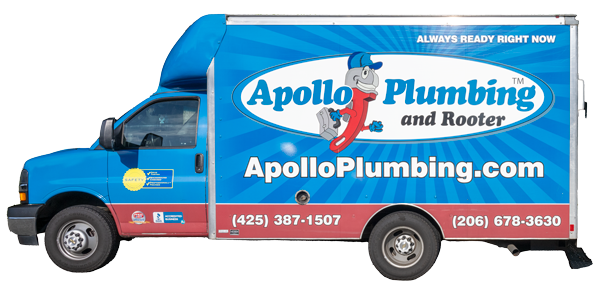Conventional water heaters last about ten years. However, the lifespan of your unit depends on a few factors, such as installation methods, usage patterns, maintenance schedules, and the quality of the tank itself. It can be difficult to know when to replace a residential water heater, especially if it hasn’t stopped working completely. Before deciding, check out these signs that it may be time to replace your water heater.
There’s Not Enough Hot Water to Go Around
Does it seem as if the hot water always runs out halfway through your shower? If the heater can’t keep up with the family’s requirements, it may be time for an upgrade. If the water runs out faster than normal, it may be due to sediment in the tank. However, if it just takes too long to heat up, or if it doesn’t get very warm, the thermostat may be the problem. If a thermostat adjustment doesn’t yield the desired result, and if there’s still power going to the unit, consider replacing the water heater.
Bothersome Leaks
If there’s water coming from the tank, the damage has likely already been done. Rusty metal quickly forms holes, and the nearly constant heating and cooling of the metal may also cause leaks. As the hot metal expands, cracks will form in the inner tank and water will seep out, causing serious damage to the walls, floors, and other areas.
Most water heater leaks happen when the water is at its hottest. Until the unit’s tank reaches its highest temperature and begins to expand, the cracks will stay closed and the leak won’t be visible. It may take some time to see the problem, simply because it’s not continuous.
If there’s a puddle of water around the water heater, try to find its source. Some leaks come from connections, fittings, and overflow pipes. These issues are easily resolved, unlike tank damage, which typically means it’s time to replace the unit.
Odd Noises
Strange new sounds coming from the water heater may indicate a serious problem inside the unit. In most cases, these noises are caused by sediment buildup in the tank. This buildup makes the water heater run less efficiently, causing damage over time. The built-up minerals harden as they’re constantly reheated, and they may hit the heating element, creating rumbling, popping, cracking, and banging sounds.
Rusty Water
Over the years, rust may build up on the inside of a water heater. It will get worse with time, and it may even cause serious leaks and other damage. Your tap water may take on a rusty tinge, which might become more noticeable when using the hot water.
Sometimes rust comes from the plumbing itself. To determine if the problem is in the water heater, drain water from the tank into a five-gallon bucket. Fill the bucket several times; if all the water is rust-colored, the tank should be replaced.
Hot Water With a Foul Odor
When using the hot water, be sure to look for any odd smells. The metal coating on the inside of the water heater’s tank may gradually flake off, giving the water a metallic odor and taste. If your water tastes and smells funny, it may be time for a new tankless water heater.
Increasing Maintenance Requirements
Does it seem as if you’re calling a plumber every few months? The cost of service calls can add up quickly, and a water heater’s increased maintenance needs may indicate that it’s past its prime. Rather than paying for repairs, it may make more sense to invest in a new, reliable water heater.
Installation costs vary widely depending on the unit’s location, warranty, capacity, and other factors. With so many options available, there’s sure to be a new water heater that fits your budget.
The Current Unit’s Age
It’s impossible to predict how long a water heater will last, but if it’s approaching the ten-year mark, it’s more likely to need replacement. Do a bit of research on your current unit if it is starting to show its age.
If you’re living in a household that uses a significant amount of hot water, your unit may not last as long as expected. In areas with very hard water, units tend to wear out sooner. Well-maintained water heaters may last a long time even with hard water and high use. If the unit is flushed and serviced regularly, you’ll get more time out of it.
Your Household is Growing
The size of your household may indicate the need for a newer and more powerful water heater. As people move into the home, it puts additional stress on the unit, causing premature wear and eventual failure. Though regular maintenance will extend a water heater’s lifespan, nothing lasts forever—so consider replacing the unit as your family grows.
A Faulty Pressure Relief Valve
There are a couple of significant signs to look for where this valve is concerned: leaking and insufficient flow. In either case, replacing the valve may not resolve the problem. The pressure relief valve opens when the tank’s pressure or temperature get too high, minimizing the risk of explosion. Corrosion and mineral buildup may cause a valve to fail, leading to severe damage and the risk of injury.
Knowing when to replace a water heater is easier when you look for the signs of a problem. Though regular maintenance will help to extend a water heater’s lifespan, all units eventually need to be replaced. Investing in a reliable new unit will make every day more comfortable by providing a steady supply of hot water for showers, laundry, dishes and more.
Now that you’ve learned the signs of a failing water heater, it’s time to act. We suggest calling our Marysville, WA-based team at Apollo Plumbing. We’ve been servicing the area for over 15 years, and we strive to give each customer the individualized attention they deserve. Schedule an appointment online or call today for water heater installation services.

